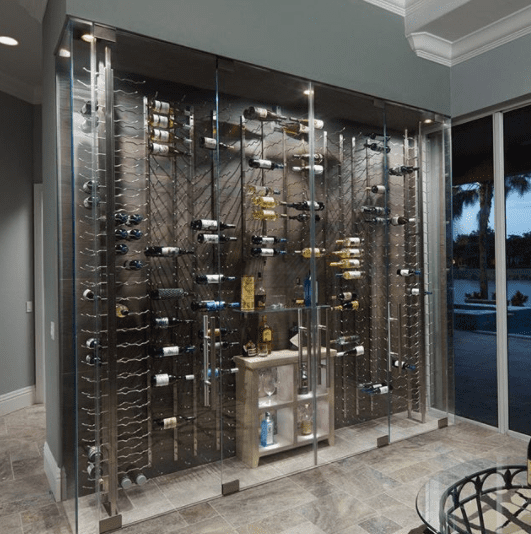In a 2x6 wall fiberglass will provide you with an r 19 insulation value.
Wine cellar insulation r value.
When building a wine cellar use the following table to assist in calculating the r value for various construction materials that you may use in your wine cellar.
If you decide to use this material for your custom cellar make sure that a 6 mil plastic vapor barrier is applied to the warm side of the walls.
R wine cellar winery 2014 smallman street pittsburgh pa 15222 cellar on penn 2031 penn avenue pittsburgh pa 15222 r outlet at the galleria of mt.
In this case you might consider selecting a cooling unit with a greater btu output to offset the diminished r value.
The closed cell structure is very strong.
Generally the next size up cooling unit will be adequate but we recommend you consult a professional to be sure.
If you need assistance understanding the charts don t hesitate to contact us.
In the case of glass enclosed wine cellars note that glass is a poor insulator.
R wines available at.
Increasing shear and racking strength by 300.
R value or the thermal resistance value of a material is a critical rating.
This value can be adequately provided by fiberglass batts.
It also stops water vapour from escaping and damaging areas adjacent to the wine cellar.
Wine cellar construction guide.
With an r value of about 7 per inch this takes your cellar comfortably above r 30 on average.
R value indicates the ability of the insulation to restrict heat flow a higher r value indicates better insulation.
Lebanon 1500 washington rd pittsburgh pa 15228.
Fundamentally insulation can be the most limiting factor in the function of your wine cellar.
Wine storage experts strongly recommend that cellars should have a minimum of r 13 insulation.
In a 2x4 wall cavity using fiberglass will provide you with an r 13 insulation value.
If the walls don t reach an r value of at least 20 and the floor and ceiling don t reach at least 30 there will be cold air lost to the rest of the home.
Closed cell foam is a code approved vapor barrier with a permeability rating of under 45 ng as well as a code approved air barrier and thermal insulation.
Hard woods like oak typically have an insulating value of r 1 per inch of thickness.
However softer woods such as pine might have r values twice as high due to their greater number of air filled pores.
After the vapor barrier has been installed you will need to put insulation in the stud and joist cavities.
Another example of how the presence of dead air spaces affect a product s r value can be seen with wood.
When applying traditional fiberglass batting make sure to orient the paper or foil barrier toward the warm side of the wine cellar wall.

